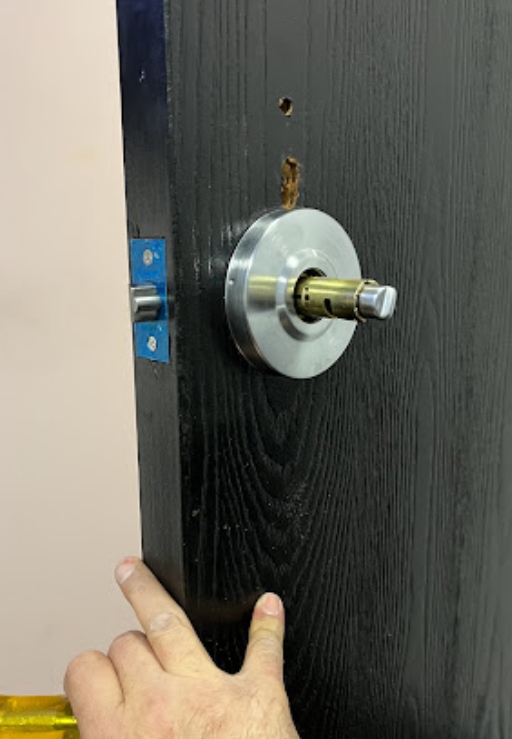Rekeying vs. Replacing Locks: What Aurora Homeowners Should Know

Aurora homeowners must weigh the options of rekeying versus replacing locks to enhance security. Rekeying modifies existing locks so they operate with a new key, offering a cost-effective solution for immediate security needs and rendering old keys useless. In contrast, replacing locks is advisable when they are damaged or outdated, providing upgraded security and reliability. While rekeying typically costs between $20 to $50, full lock replacement can range from $100 to $300. Understanding these differences can guide homeowners in making informed decisions for their security needs, and exploring the implications of each choice reveals further considerations.
Key Takeaways
- Rekeying is a cost-effective solution, typically ranging from $20 to $50 per lock, ideal for enhancing security without replacing hardware.
- Replacement, averaging $100 to $300 per lock, offers improved security technology and reliability, especially for locks over a decade old.
- Consider rekeying for immediate security needs when changing keys, while replacement is better for damaged or outdated locks.
- Rekeying is quick, often completed in under an hour, while replacement involves more time for installation and adjustments.
- For modern security features, consider upgrading to smart locks during replacement, which provide advanced protection and convenience.
Understanding Rekeying Locks
Understanding the process of rekeying locks can significantly enhance a homeowner’s security strategy. Rekeying involves altering the internal mechanism of a lock so that it can be operated by a new key, effectively rendering any previous keys useless. This process is particularly useful in situations where a homeowner has lost their keys, moved into a new residence, or wishes to restrict access to certain individuals.
During rekeying, a locksmith removes the lock cylinder and replaces the pins inside with new ones that correspond to a different key. This allows the existing lock to be retained while ensuring that previous keys no longer function. Importantly, rekeying is a cost-effective solution compared to full lock replacement, as it requires less labor and materials.
Homeowners should consider that rekeying is most effective for standard pin tumbler locks, while other types may require different methods. Additionally, rekeying does not address physical damage or wear in the lock itself, which may necessitate replacement.
Ultimately, understanding rekeying provides homeowners with a practical option for improving security without the expense of complete lock replacement. A residential locksmith can expertly perform rekeying to enhance your home’s security efficiently and affordably.
Benefits of Rekeying
Rekeying offers several advantages that make it an appealing choice for homeowners seeking to enhance their security. One of the primary benefits is cost-effectiveness. Rekeying locks is generally less expensive than purchasing and installing new locks, allowing homeowners to secure their properties without breaking the bank.
Additionally, rekeying provides convenience. When a homeowner rekeys their locks, they can consolidate multiple keys into one, simplifying access to their home. This is particularly useful for those who may have previously shared keys with others, as it eliminates the risk of unauthorized access.
Rekeying also enhances security by rendering old keys useless. If a homeowner has lost a key or is unsure of who might still have a copy, rekeying ensures that previous keys cannot be used to gain entry. This is crucial for maintaining peace of mind.
Furthermore, rekeying is a relatively quick process, often completed within an hour by a professional locksmith, allowing homeowners to enjoy improved security with minimal disruption to their daily lives.
When to Replace Locks
Homeowners should consider replacing locks in situations where security is compromised or when the locks have become outdated. A significant indicator for replacement is if a lock has been damaged, whether through attempted break-ins or normal wear and tear. Damaged locks may not function effectively, leaving your home vulnerable.
Additionally, if you have moved into a new property, it is prudent to replace the locks to ensure that previous owners or other individuals do not have access.
Locks that are over a decade old may also warrant replacement, as advancements in technology and security standards can render older models less effective.
Another reason to replace locks is if you experience frequent issues such as jamming or difficulty turning the key. These problems can indicate that a lock is nearing the end of its lifespan.
Finally, homeowners may wish to replace locks to upgrade to smart locks or more advanced security features, providing greater convenience and enhanced protection.
Recognizing these signs can help homeowners make informed decisions about when to invest in new locks for their properties.
Advantages of Lock Replacement
Considering the importance of security in today’s world, replacing locks offers several significant advantages that enhance the safety of a property. One of the primary benefits is improved security. New locks are designed with advanced technology that provides better resistance against forced entry and tampering, making it much harder for intruders to breach your home.
Additionally, replacing locks allows homeowners to select high-quality products that meet their specific security needs. This could include smart locks with features such as keyless entry, remote access, and alerts, which provide an extra layer of convenience and security.
Another advantage is the assurance of reliability. Older locks may wear down over time, leading to mechanical failures or difficulties in operation. New locks ensure smooth functionality and peace of mind that they will perform when needed.
Furthermore, a lock replacement can also increase your home’s value. Prospective buyers often look for updated security features, which can be a selling point.
Cost Comparison: Rekeying vs. Replacement
When evaluating the financial implications of enhancing home security, the choice between rekeying and replacing locks becomes crucial.
Rekeying typically offers a more cost-effective solution, often ranging from $20 to $50 per lock. This process involves altering the internal mechanism to ensure that old keys no longer work, providing a fresh level of security without the need to purchase entirely new hardware.
In contrast, replacing locks can incur significantly higher costs, averaging from $100 to $300 per lock, depending on the type and brand. This expense includes not only the price of the new lock but also potential installation fees, which can add to the overall budget.
Homeowners should also consider the long-term implications of their choice. While rekeying is less expensive initially, it may not address underlying issues, such as wear or outdated technology.
Conversely, replacing locks can enhance security features, providing better protection against modern threats. Ultimately, the decision should balance immediate costs with future security needs, ensuring that homeowners invest wisely in the safety of their property.
Aurora, CO’s Trusted Locksmith on Rekeying or Lock Replacement Choices
BS Locksmith LLC
2993 S Peoria St Ste 136, Aurora, CO 80014
(720) 372-8021
